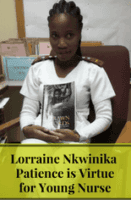Before the first White person came to Africa, Africans (or Black people) had been living here for many years. Some people, especially White people who studied history, said that during those times, Black people were nothing but naked people who didn’t know anything besides eating a lot and killing each other. Other people, especially Black people who studied history, believe that during those times, there may have been some wars or conflicts, as there were in the rest of the world, but Black people were very smart people who had universities and invented a lot of things.
Finding out the true history of Africa is very important – especially for Black people living in Africa – because, by finding it out, a lot of people will be able to understand what Africa and her people used to be like before the first White man came here. Decolonisation, which has been spoken about a lot for a while now, is a process of finding out this history and giving African people an idea of what their ancestors used to be like before they were colonised.
According to the dictionary, a colony is a “country or area under the full or partial political control of another country and occupied by settlers from that country”. Before 1885, Africa was a land that didn’t have borders; a land where anyone could live wherever they wanted to and with whomever they wanted to. Because of those conditions, people could move around freely, live anywhere they wanted to and mix with other people – this is why you find Setswana speaking people in countries such as Zimbabwe and Namibia – but, after 1885, things took a drastic change.
In the years 1884 and 1885 a conference was held in Germany, called the Berlin Conference, where Africa was divided into 54 different countries that countries such as England, Spain, Germany, Portugal and many other countries would keep, rule over, and turn into their colonies. After that conference, borders were erected and people could no longer move around freely and live wherever they wanted to. Countries like England took over and ruled countries like South Africa, Botswana and many others; while Portugal took over and ruled countries like Angola, Cape Verde, Guinea-Bissau, Mozambique, São Tomé and Príncipe, and Equatorial Guinea.
After taking over these countries, the colonisers introduced things like schools – which taught their languages and traditions – and churches – which taught their religion – and, as a result, you now find things like English being a national language in countries like South Africa, and Portuguese being a national language in countries like Angola. Together with their languages and religions, the colonisers also taught African people that African history was full of nothing but people killing each other and living primitively and that, without being taught by White people, Black people would go back to those times and live that way again.
This period of time where African countries were ruled by other countries is commonly referred to as colonial times.
In 1957 Ghana, under the leadership of Kwame Nkrumah, freed itself from the rule of its coloniser – Britain – and, after gaining this freedom, fought for other countries in Africa to be freed from colonial rule. In 1993 Eritrea became the last country to be freed from colonial rule and Africa, for the first time in its history as a continent with 52 countries, became a continent full of countries which had political independence.
These times, where African countries gained independence from their colonisers, are commonly referred to as post-colonial times.
During those times of fighting for freedom, and after them, one of the most important things that the leaders of these newly freed African countries tried to do was teach the people of their countries the true history of Africa and her people. The leaders realised that a process of decolonisation, which is a process of finding out and teaching their people the true history of Africa, was important if their people were ever going to believe that they could survive without the rule of their colonising countries.
So, with all that being said, I think it is safe for me to say that, without finding out and teaching African people about the true history of Africa, true decolonisation is impossible. That it is safe to say that true decolonisation lies in African people being given back the dignity and respect that was taken from them, and is due to them, through narrating for them the true account of their history.
Africans need to know their true history and, through knowing it, become a people who will shape the future like their ancestors did.
***
This blog also forms part of our Rights 2.0 – Bridging Divides project. Find out more here.





